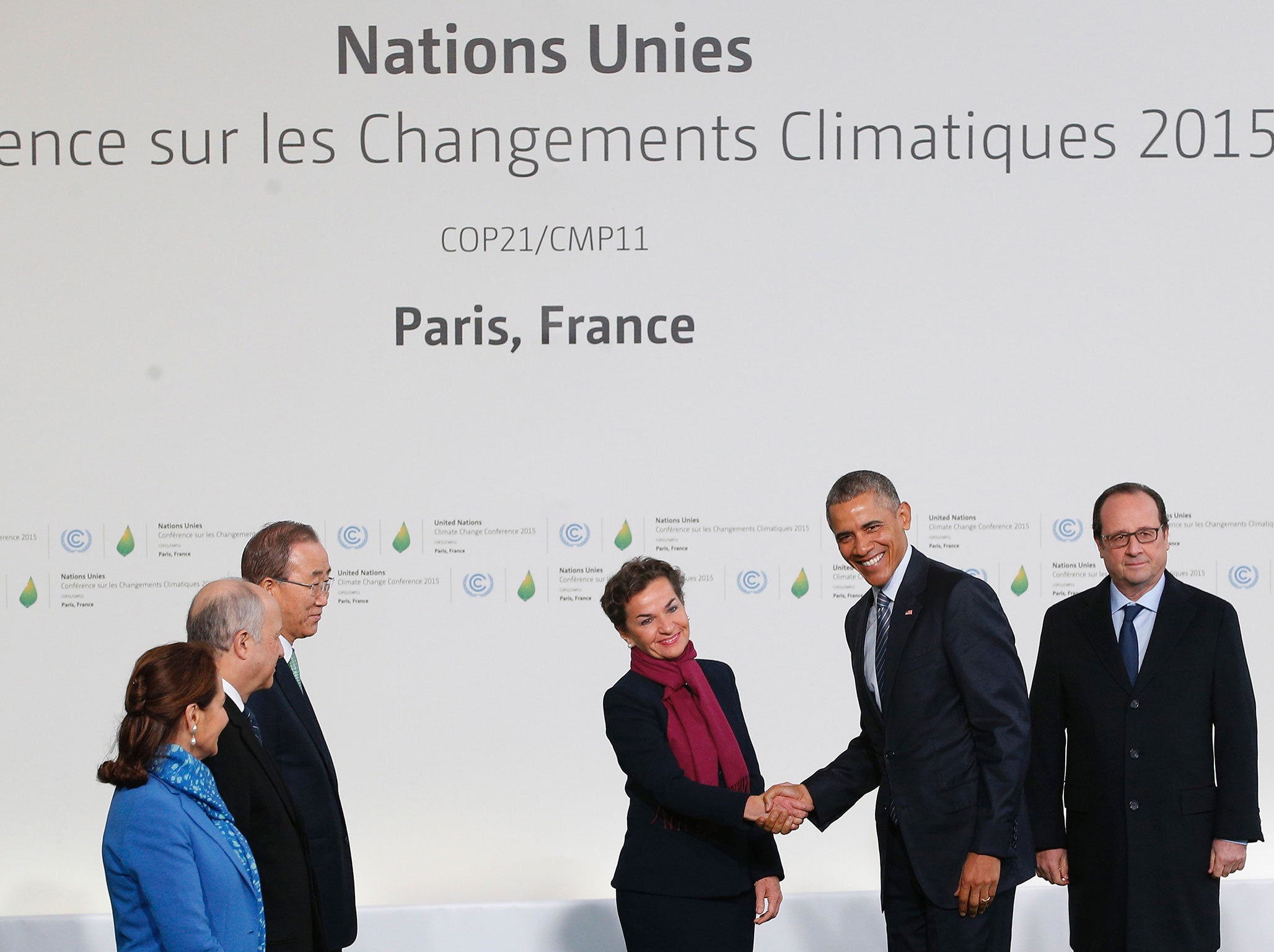Paris climate change talks: 10 times we tried to fix the environment before
Fighting global warming will probably require a huge diplomatic effort — but those have sometimes run into trouble in the past

The international fight against climate change is set to see perhaps its most important two weeks in history, as world leaders gather in Paris in the hopes of coming to an agreement to protect the environment.
But while the stakes are higher than ever, it is far from the first time that international diplomats have met in an attempt to come to an agreement. For the last 30 years, governments around the world have been fighting — often with each other — in an attempt to limit the effects of global warming.
Paris is just one of a range of cities that have played host to huge conferences of world leaders in recent years.
Often those have been disappointing, failing to meet the aims that they were set up with. But they have also made huge strides — here are 10 meetings that laid the groundwork for the meetings in Paris, and where we stand today.
1987: MONTREAL - Governments adopt a treaty pledging to restrict emissions of chemicals damaging the ozone layer. While it doesn't deal with climate change specifically, the Montreal Protocol becomes a model for how to rein in man-made emissions through international agreements.
1988: NEW YORK - The U.N. General Assembly endorses the creation of the Intergovernmental Panel on Climate Change. It is set up the same year by two U.N. agencies, the World Meteorological Organization and the U.N. Environmental Program, to assess the existing knowledge about climate change.
1990: LONDON - The IPCC releases its first scientific assessment of climate change. It says greenhouse gas levels in the atmosphere are increasing due to human activity, resulting in warming of the Earth's surface.
1992: RIO DE JANEIRO - World leaders gathering for the first Earth Summit sign the United Nations Framework Convention on Climate Change, the first international treaty aimed at limiting greenhouse gas emissions. However, it sets no binding emissions targets.
1997: KYOTO, Japan - The Kyoto Protocol is adopted, setting binding emissions targets for wealthy countries. The United States doesn't join the treaty because it doesn't include big developing countries such as China and India. The U.S. also says the treaty would harm its economy.
2004: MOSCOW - President Vladimir Putin signs a bill confirming Russia's ratification of the Kyoto Protocol. The move means countries representing more than 55 percent of global emissions support the treaty, a condition for it to take effect.
2007: OSLO, Norway - Former U.S. vice president and climate campaigner Al Gore and the IPCC share the Nobel Peace Prize for their efforts to raise awareness about global warming.
2009: COPENHAGEN, Denmark - The first attempt to craft a global emissions treaty to replace Kyoto, which is set to expire in 2012, falls apart amid disputes between rich and poor countries over who should do what. Acrimonious negotiations end with a voluntary deal inviting countries to present nonbinding emissions targets for 2020.
2011: DURBAN, South Africa - U.N. climate talks produce a major breakthrough as countries agree to adopt a universal agreement on climate change in 2015 that would take effect five years later and apply to all of them.
2013: STOCKHOLM - The IPCC says it's "extremely likely" that human influence is the dominant reason for warming temperatures recorded since the mid-20th century.
2015: PARIS - More than 190 governments meet in the French capital to finish what's envisioned as a landmark deal to rein in greenhouse gas emissions after 2020.
Subscribe to Independent Premium to bookmark this article
Want to bookmark your favourite articles and stories to read or reference later? Start your Independent Premium subscription today.

Join our commenting forum
Join thought-provoking conversations, follow other Independent readers and see their replies